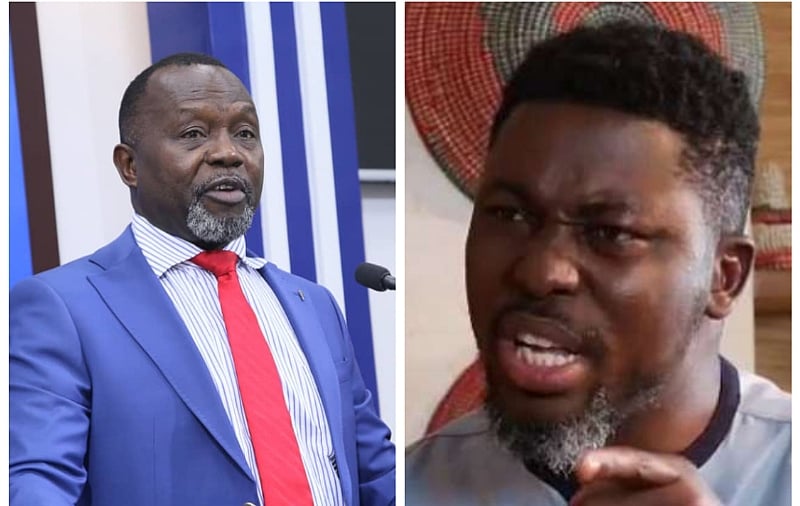This political clash between Independent Member of Parliament Kwame Asare Obeng, known as A Plus, and Attorney General Dr. Dominic Ayine revolves around accusations of corruption related to a sanitation levy. A Plus initially ignited the controversy on social media, alleging Dr. Ayine’s involvement in manipulating the levy for personal gain, benefiting individuals connected to him. He portrayed the Attorney General as complicit in a scheme that diverted public funds for private interests. This sparked a public exchange, forcing Dr. Ayine to respond and defend his reputation.
Dr. Ayine addressed the allegations in a press conference, refuting A Plus’s claims and offering an alternative explanation. He suggested that the MP had misconstrued a campaign donation from a resident of East Legon, Mr. Sledge, as a bribe. He emphasized his own integrity and challenged A Plus to provide concrete evidence to support his accusations, stating his confidence in his ability to perform his duties ethically. This public denial aimed to discredit A Plus’s claims and portray them as misunderstandings or deliberate misrepresentations.
A Plus, however, was not deterred by Dr. Ayine’s response. He intensified his attack on social media, reiterating his accusations and providing additional details. He claimed that Dr. Ayine had solicited GH¢500,000 from Mr. Sledge, not as a campaign donation, but as a bribe intended to influence the Appointments Committee of Parliament. This direct accusation of bribery significantly escalated the conflict and painted a picture of Dr. Ayine attempting to manipulate parliamentary processes for personal or political advantage. A Plus’s aggressive language and personal insults further intensified the feud.
Dr. Ayine, in his defense, countered A Plus’s reiterated accusations, dismissing them as “palpable falsehoods.” He highlighted the fact that he wasn’t a member of Parliament’s Finance Committee at the time the sanitation levy was passed, therefore he couldn’t have influenced its approval. This technical point sought to undermine A Plus’s claims by demonstrating the Attorney General’s lack of direct involvement in the legislative process related to the levy. It aimed to portray A Plus’s accusations as not only false but also logically flawed.
This public back-and-forth has highlighted a deeper issue of transparency and accountability within the Ghanaian political landscape. A Plus’s accusations, whether substantiated or not, tap into public concerns about corruption and the potential misuse of public funds. His aggressive approach, while potentially inflammatory, reflects a growing demand for greater scrutiny of government officials and their dealings. Dr. Ayine’s responses, on the other hand, emphasize the importance of due process and the presumption of innocence until proven guilty.
The ongoing dispute between A Plus and Dr. Ayine underscores the importance of independent investigations and a robust legal framework to address allegations of corruption. Whether A Plus can provide concrete evidence to support his claims remains to be seen. However, the public nature of this exchange has already brought the issue of potential corruption to the forefront, prompting calls for greater transparency and accountability within the government. The outcome of this dispute could have significant implications for the political landscape and public trust in Ghana’s institutions.














